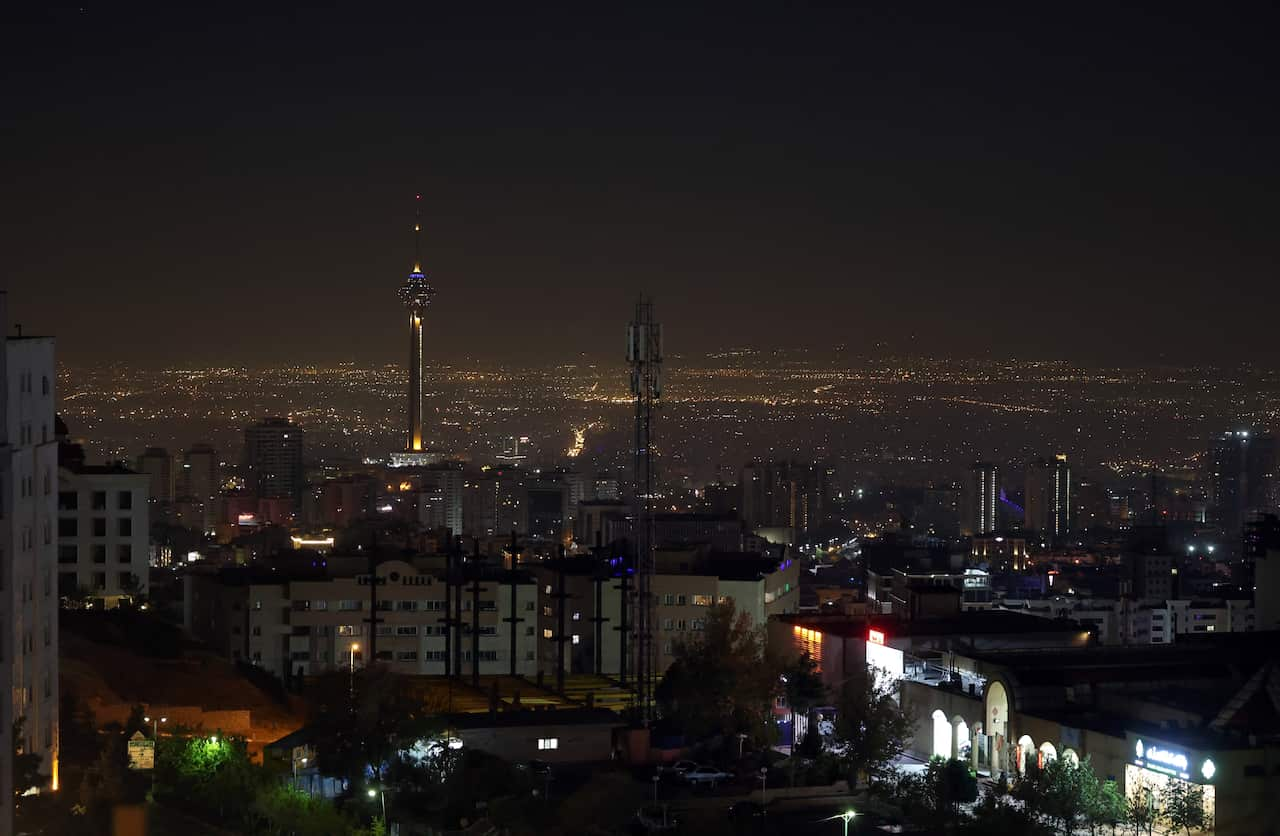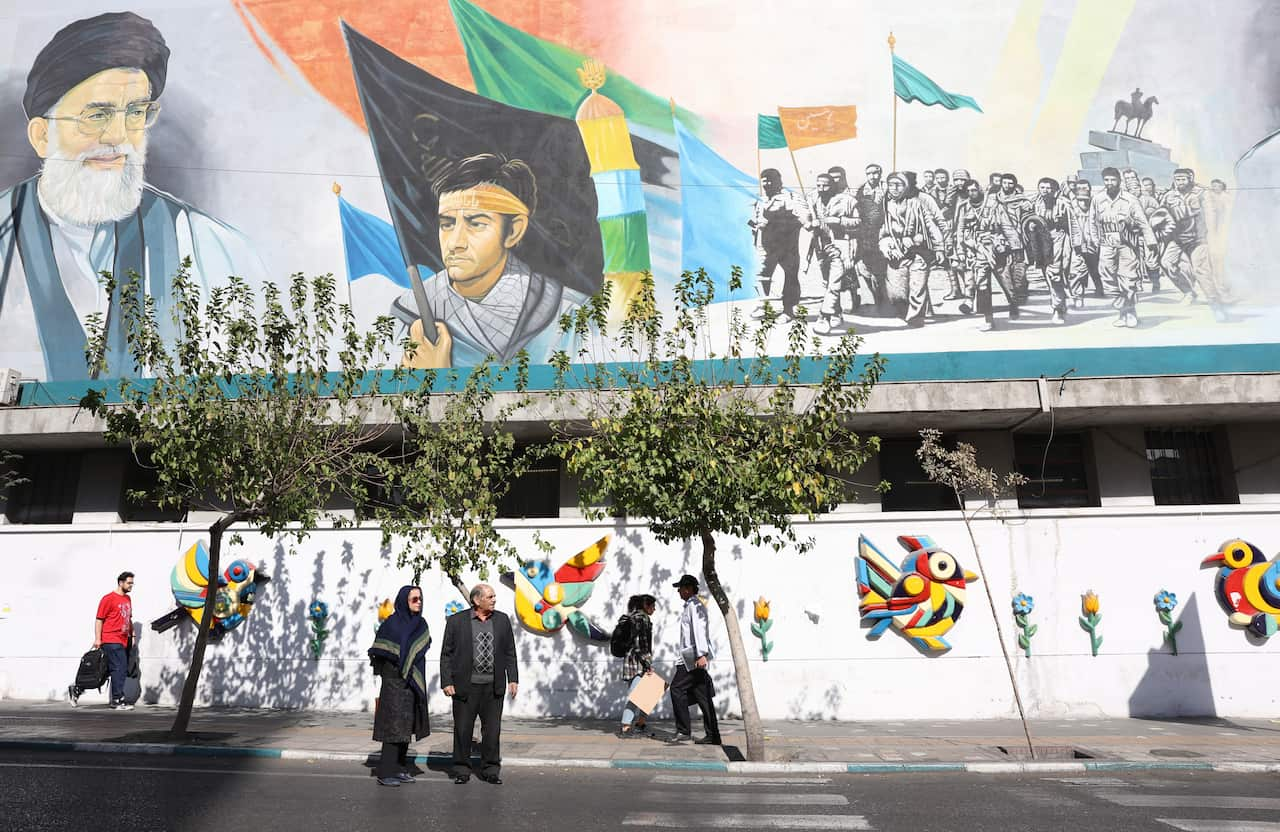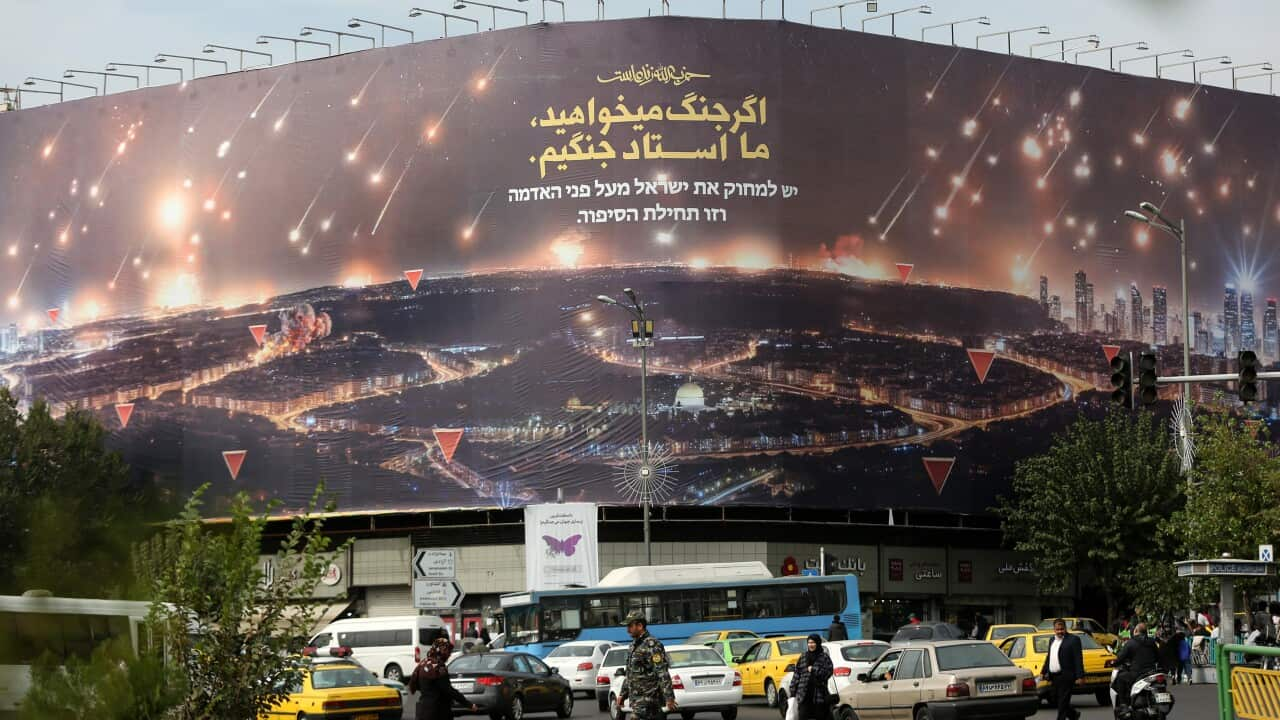Key Points
- Israel said it had concluded an operation in which it launched strikes on military targets in Iran.
- Iran has said it has the “right” to defend itself, but also “recognises its responsibilities towards regional peace”.
- World leaders have urged restraint to avoid further escalation.
Iran has said it would defend itself after Israeli air strikes killed at least four soldiers and further stoked fears of a full-scale war in the Middle East.
Confirming its own strikes after explosions and anti-aircraft fire echoed around Tehran on Saturday, the Israeli military said it had .
The “retaliatory strike has been completed and the mission was fulfilled”, and Israeli aircraft “returned safely”, a military spokesperson said.
Iran confirmed Israel had targeted military sites around the capital and in other provinces, saying the raids caused “limited damage” but killed four soldiers.
Loud explosions were heard in Tehran and neighbouring cities. Source: AAP, EPA / Abedin Taherkenareh
Iran’s armed forces general staff said only radar systems were damaged in the strikes and held back from any threat of immediate retaliation.
Israel warned Iran would “pay a heavy price” if it responded to the strikes, and the United States, Germany and Britain demanded Tehran not escalate the conflict further.
Iran ‘entitled’ to defend itself but recognises peace obligations
Iran’s foreign ministry said the country was “entitled and obligated” to defend itself, but added it “recognises its responsibilities towards regional peace and security”.
“While reserving its legal and legitimate right to respond at the appropriate moment, Iran is prioritising the establishment of a lasting ceasefire in Gaza and Lebanon,” its general staff of armed forces said.
Foreign minister Abbas Araghchi held telephone talks with his Egyptian, Qatari and Syrian counterparts.
Qatar’s Sheikh Mohammed bin Abdulrahman Al-Thani, a key mediator in Gaza truce efforts, voiced “deep concern over the serious repercussions that may result from this escalation,” his ministry said.
How world leaders reacted to Israel’s retaliatory attack
US President Joe Biden said he hoped “this is the end” after the pre-dawn Israeli strikes, noting that “it looks like they didn’t hit anything other than military targets”.
Biden had urged Israel to spare nuclear and oil facilities in its retaliatory strikes and the International Atomic Energy Agency confirmed that no nuclear sites were hit.
A defence official said there was “no US involvement” in the strikes on Iran, but afterwards, Israeli President Isaac Herzog paid tribute to “our great friend the USA for being a true ally, and for the overt and covert cooperation”. He did not elaborate.
US National Security Council spokesman Sean Savett said Israel’s response was “an exercise in self-defence”. He urged Iran to “cease its attacks on Israel so that this cycle of fighting can end without further escalation”.
Iran confirmed Israel had targeted military sites around the capital and other provinces, saying the raids caused “limited damage” but killed four soldiers. Source: AAP, EPA / Abedin Taherkenareh
The European Union called for all parties to exercise utmost restraint to avoid an “uncontrollable escalation”.
Other countries, including many of Iran’s neighbours, condemned Israel’s strikes and some, such as Russia, urged both sides to show restraint and avoid what Moscow dubbed a “catastrophic scenario”.
The Israeli retaliation drew condemnation from Iraq, Pakistan, Syria and Saudi Arabia, which warned against further escalation. Jordan said Israeli jets had not used its airspace. Türkiye was one of the most outspoken critics, calling for an end to “terror created by Israel”.
Lebanese ally Hezbollah said it had already launched rocket salvos targeting five residential areas in northern Israel. The Israeli army said 80 projectiles were fired across the border on Saturday.
Hezbollah later issued evacuation warnings for more than a dozen named locations in Israel, in a new move mirroring the warnings long put out by the Israeli military for areas of Gaza and Lebanon where it intends to operate.
Tensions between Iran and Israel have grown rapidly since Palestinian group Hamas’ October 7 attack on southern Israel, in which 1,200 people were killed and around 250 taken hostage.
The Israeli military has blamed “Iran and its proxies” in the region for “relentlessly attacking Israel since October 7”.
For more than a year, Israel’s bombardment and ground war in Gaza have been causing mass civilian casualties in the densely populated Palestinian territory.
More than 42,900 people have been killed in Gaza since 7 October, according to figures from the enclave’s health ministry, which the United Nations considers reliable.
The campaign has also caused much of Gaza’s population to become displaced and led to a dire humanitarian crisis.
In late September, Israel turned its focus to Lebanon, hitting Hezbollah targets and leaders and then sending in ground troops. At least 1,615 people have been killed in Lebanon since 23 September, according to a tally of Lebanese health ministry figures.
Fears of an escalation have increased since 1 October, when Iran , killing one person in the Israeli-occupied West Bank.
Iran said its October 1 missile attack on Israel was retaliation for an Israeli air raid that , as well as the .
In April, in its first-ever direct assault against Israeli territory, Iran launched more than 300 drones and missiles. Tehran said the barrage was retaliation for a strike on Iran’s consular annexe in Damascus that killed commanders of its Islamic Revolutionary Guard Corps.
Explosions later in April in what US officials, cited by American media, said was Israeli retaliation.


